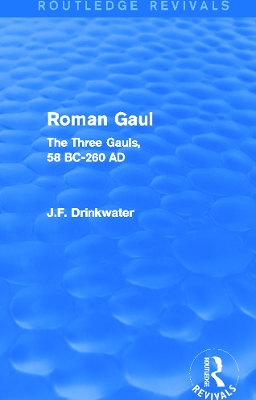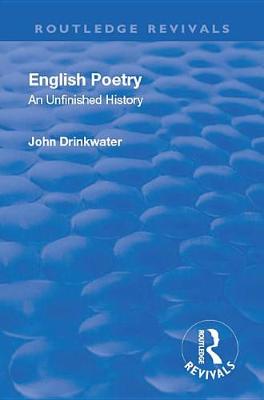Routledge Revivals
2 total works
Roman Gaul, first published in 1983, makes use of a wealth of archaeological discoveries and modern methods of interpretation to give an account of the Roman presence in Gaul, from the time of Caesar's conquests until the Crisis of the third century. Professor Drinkwater emphasises the changes caused in the Three Gauls and Germany by the impact of Romanisation - urbanisation, agriculture, trade and education - and points out the often curious ways in which Roman influences survive in these areas to the present day.
Particular attention is paid to the evolution of the landowning class, as well as its relationship with the artisans and traders found in townships and cities. An assessment of the strength of Romano-Gallic society and its economy in the tumultuous third century AD concludes this lively and provocative coverage of an intriguing subject. Roman Gaul will be of interest to all students of the Roman legacy.
When a Poet writes poetry he can scarcely fail to interest. And the author of this posthumous volume was not only a poet but no mean critic too. As a result, his approach to English Poetry is not a work of merely casual interest: it is illuminating. No one could fail to be enriched and delighted by its discriminating enthusiasms, its happy quotations, and the no less happy judgements, discoveries, definitions and phrases which it gives us.
The historical portion is contained in the latter half, which deals with its subject in a discursive way from the beginnings to Elizabethan times - where the author stopped in the middle of a sentence. This premature ending is deepy regretted. But, fortunately for us, the first five chapters are devoted to general and personal observations, and are so full of references to the intervening and modern periods that we can genuinely claim to have here a fair impression of Drinkwater's view of the whole panorama of English Poetry.

